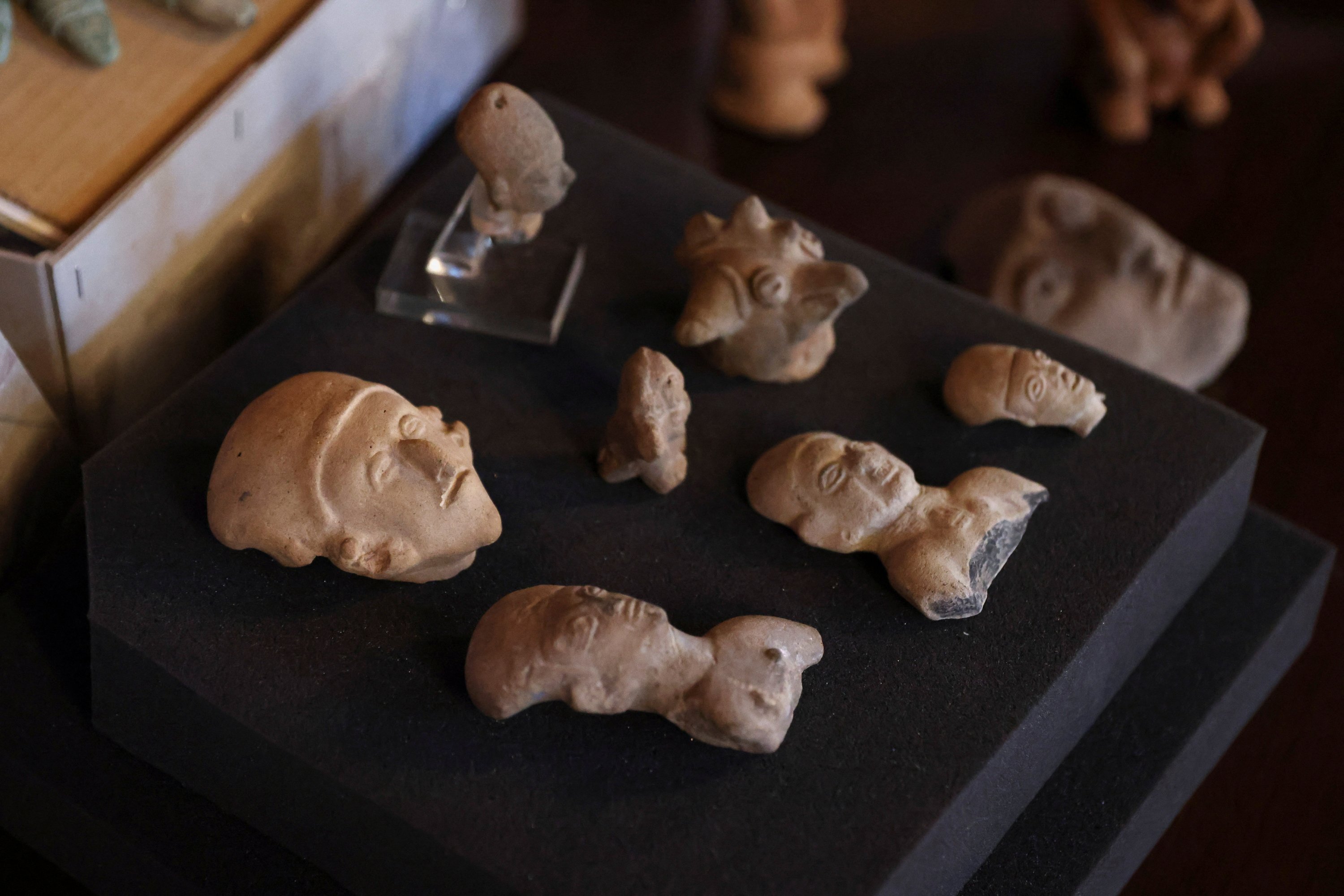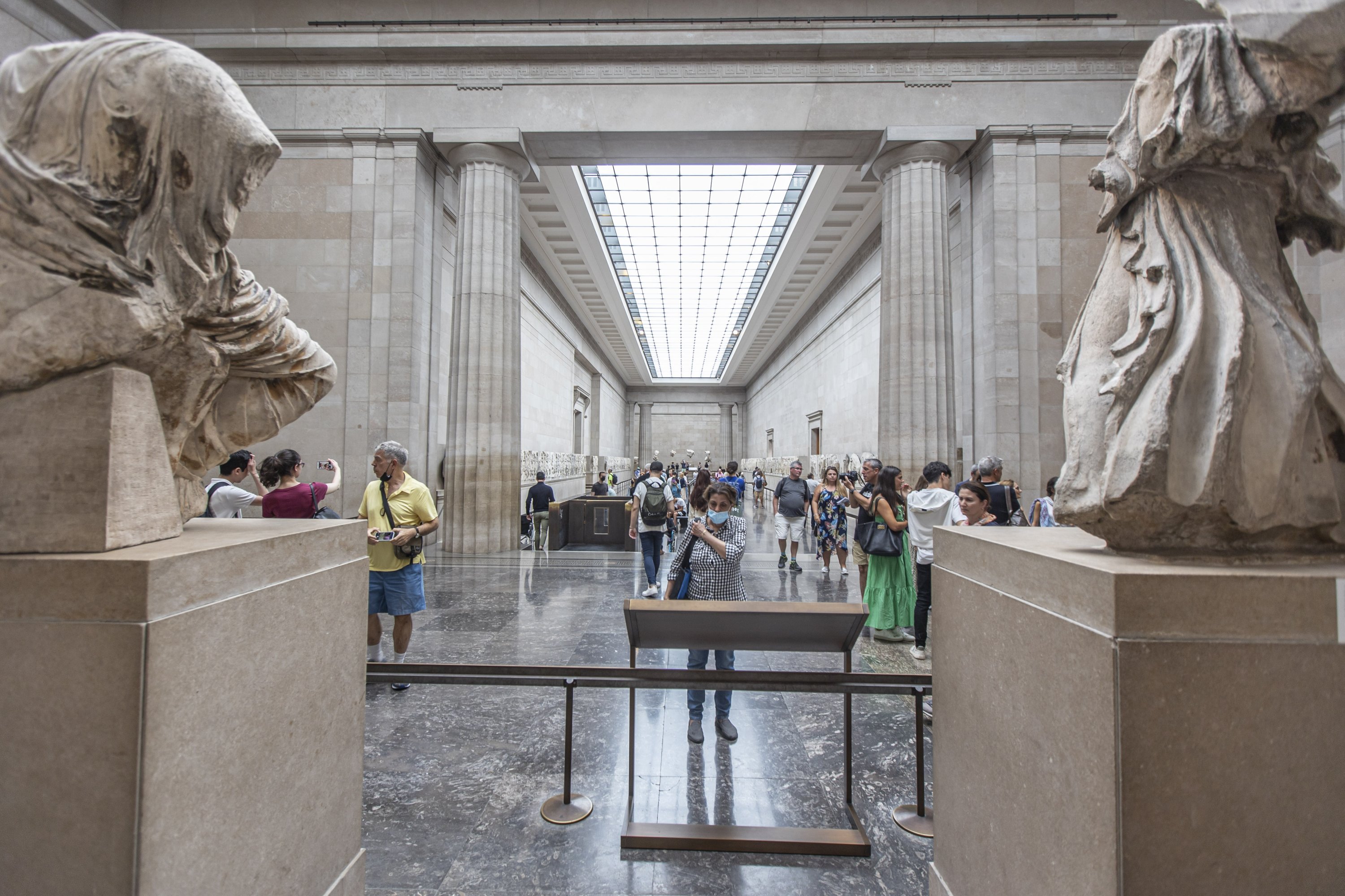© Turkuvaz Haberleşme ve Yayıncılık 2025
Repatriation is the word these days.
Deriving from the Latin word "Patria," which roughly translates into "native land," repatriation refers to the process of "returning or restoring to one's own country," as the world's greatest museums and leading art institutions have started to initiate the process of returning artifacts smuggled from former colonial lands.
Within that framework, the mission initiated in 1930 was simple in theory: Reclaiming artifacts known as the Benin Bronzes and giving them back to Nigeria after they were looted by British colonial troops who invaded once-prosperous Benin City.
It took approximately 92 years to achieve this feat after the issue was tackled at the international level between the states following a series of diplomatic processes.
Now, especially in the last few months, with an unexpected sudden focus, acts of repatriation adorn the pages of newspapers. A show of image correction, proving to all that they are sensitive to "world" history by publicizing it. But wait. Wasn't this already an issue after the repressed nations gained their independence in the post-colonial period? The year 2022 seems a little late for this.

Call it redemption for the past through repatriating cultural items or an attempt to be seen as respectful of the traumas caused by colonialism by acknowledging the full negative legacy of colonial rulers, it simply does not look right.
Yes, these museums return some artifacts under the name of repatriation. In some cases, these processes can be handled very rapidly, especially for artifacts with legal claims and those that fall within the framework of smuggling. That is unless the request includes the most special piece of the museum collection! Then, delicate sensitivity to the painful past and being politically correct is no longer important. The question here is whether they can bear to lose dozens of visitors.
We see that the actions carried out in the name of "repatriation" are not generous acts done out of concern for appropriation but rather an obligation.
When it comes to repatriating artifacts discovered in the greatest archaeological excavations, which attract the most visitors to museums, for some reason, none of these justifications seem to apply. Arguments often arise around UNESCO's declaration that "no culture is a hermetically sealed entity," raising concerns about the preservation of the "common heritage" of humanity. A very convenient argument.
Recently, Egypt insisted on the repatriation of the Rosetta Stone, one of its greatest archaeological wonders that currently attracts many visitors to the British Museum in London. Also on Saturday, the Greek newspaper Ta Nea mentioned that the U.K. is holding “secret talks” with Greece for the return of the Parthenon Marbles. Yet, the British museum stated that it would not “dismantle our great collection, as it tells a unique story of our common humanity.”
Small and out-of-the-spotlight artifacts are sent back to their country of origin as a reminder of the stronger power that holds the past – look what I have here! But star pieces are kept for so-called "cosmopolitan visions" of the museums and institutions that echo the argument that art knows no boundaries. Acting as the proprietors of global heritage and deeming themselves the best candidates to protect these ancient marvels, isn't this just another form of colonialism in which unequal dynamics are maintained through soft power?
In that sense, while physical colonialism may be over, a type of cultural colonialism remains that appeared in a period when some nations gave themselves the task of controlling the civilization of the world by disenfranchising other cultures. If not, certain reputed museums would witness a downfall.

On the other hand, if they are really concerned about protecting these artifacts that belong to "humanity," then why have these items made their way to the world's biggest auction houses like Sotheby’s, Christie’s and Bonhams in Europe and the Americas?
In essence, the former colonial masters still unashamedly continue to benefit from the looted items their forefathers stole when they invaded, conquered, killed and enslaved. In short, colonialism continues in some areas, which obviously must stop. The only way to do this is to return the stolen goods to their rightful owners so that they can reap the benefits they provide. Insensitively displaying them without the cooperation of the representatives of their nations of origin is incorrect and an injustice.
Moreover, compensation should be paid to the original owners for the lost tourism revenues and entry fees from star items that Western museums and auction houses refuse to return. At the very least, rental fees should begin to be paid if the concern really is the preservation of the artifacts, otherwise, they are merely trading and financially benefitting from stolen goods – which is unethical and a crime throughout the world.
I strongly believe that these repatriation requests by nations are just and long overdue.
